Meet your college chairs
 Dan Douglas
Dan Douglas
Chair of the School of Building Technology
Years worked at Fanshawe: 25
Background:
- Graduated from Fanshawe's Architectural Technician program in 1979
- Upgraded his diploma from an Architectural Technician to an Architectural Technologist through the Association of Association Technologists of Ontario
- Obtained his Bachelor's degree in Psychology with a focus on Education from the University of Western Ontario in 2006
- Worked for a land surveying company and a consulting engineering firm
- Has worked at Fanshawe as a technologist, providing support for faculty and assisting students with research and projects, a co-op officer for the Architectural Technology program, a full-time professor and a program coordinator
- Became Chair in 2007
Most common question students ask:
What are the job opportunities and what is your graduation rate? Douglas replied: "We're lucky that we can tell them that our grad rates have been consistently in the 90 per cent and above." The programs provide excellent co-op opportunities, as well as a broad spectrum of career paths, he added.
Post-graduation advice:
"Don't consider this to be the end of your education. I do strongly believe in a lifelong learning process," he said. "We send students out with the most current information and technology at this time, but because we're in an industry that does change fairly rapidly, they have to be able to keep up with that pace. They've been provided with the skills to do that; it's just a matter of them having the dedication and the will to do it."
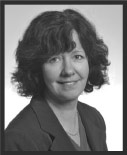 Helen Pearce
Helen Pearce
Chair of the School of Design
Years worked at Fanshawe: One and a half
Background:
- Earned a Bachelor's degree in Journalism from Carlton University in Ottawa
- Worked as a teacher in British Columbia for a number of years
- Returned to her journalist roots in London, working as a reporter at CKO News and CKSL radio stations
- Worked for five years in Abu Dhabi in the United Arab Emirates as a teacher of Media Design at a women's college
- Returned to Ontario to teach Design at Algonquin College for one year
Most common question students ask:
Which program is right for me? "I always try to help students understand their options, and understand what the differences are between the programs we offer," explained Pearce.
Post-graduation advice:
"I tell students to be persistent, and to have faith in their own abilities. They know more than they might think."
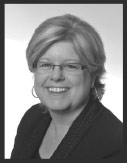 Dana Morningstar
Dana Morningstar
Chair of the School of Contemporary Media
Years worked at Fanshawe: 24
Background:
- Double major in English and Art History
- Two years as a sales rep in private sector marketing
- Returned to teaching college, worked as supply teacher, summer teacher
- English professor across school programs — business, automotive, design for seven years
- Program coordinator of Corporate Communications and Public Relations program in Language and Liberal Studies for 14 years
Most common question students ask:
"I don't think there is a most common question — mainly students want to know what is in the curriculum and the jobs they can get," she said. "The main reason most students are here is that they have a job in mind, and they're interested in earning and pursuing the career they think best suits their personality and talents."
Post-graduation advice:
"You're not going to get your dream job instantly," she explained. "The reality is very few of our new grads get to that type of job really quickly. So have a long—term goal - take any job related to your field, because it's going to help you meet people to get to the next job. Success is about content knowledge, but also about your interactions and relationships, so treat people well and they'll appreciate you."
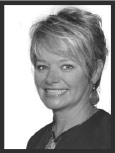 Sandra Fieber
Sandra Fieber
Chair of Human Services Department
Years worked at Fanshawe: Over one
Background:
- Studied at Confederation College in Thunder Bay, taking the Social Service Program.
- Completed an Honours Bachelor's degree in Social Work at Lakehead University, a Master's degree in Social Work and an MBA through Athabasca University
- Has worked in children's mental health and addictions, ranging from residential programs to community based programs to correctional services.
- Taught at Confederation College in Thunder Bay
- Spent time in aboriginal communities with the Aboriginal Children's Mental Health Organization
- Worked as Director at Craigwood Youth Services in London
Most common question students ask:
"Typically students are interested in knowing whether or not they will get a job in the end. Many are interested in going on to more schooling and taking a program in the Human Services as a pathway to university."
Post-graduation advice:
"Do not be afraid to dream big and risk. Continue to learn, regardless of whether you are working or going back to school, and approach things with curiosity. Also, have an appreciation for and do not underestimate what you have learned and its applicability to the outside world."
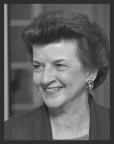 Dr. Sandra DeLuca
Dr. Sandra DeLuca
Chair of the School of Nursing
Years worked at Fanshawe: 40
Background:
- Baccalaureate degree in Nursing from the University of Rhode Island in 1969
- Taught at Fanshawe's St. Thomas and St. Joseph's campuses from 1970 to 1978
- Worked in Fort Lauderdale for a year doing public health nursing
- Returned to the St. Thomas campus in 1979 and became coordinator of the program in the early 80s
- Master's of Education from University of Western Ontario in 1996
- Ph.D. in Curriculum, Teaching and Learning, with research in Nursing Education, from University of Toronto in 2000
- Became Chair in 2005
Most common question students ask:
According to DeLuca, many students ask about the future of jobs in nursing, especially in light of the province- and nation-wide nursing and faculty shortages. Nurse advocacy groups are trying to get 70 per cent of the nursing workforce to have full-time positions, she explained, and "It has been happening little by little by little." There are plenty of jobs in the field, but the full-time positions can be hard to find. She added that some grads are "cobbling together" jobs for themselves.
Post-graduation advice:
"Being involved in the professional organizations is a way to keep passionate about the work," she said. "There are a lot of opportunities for students, graduates and faculty in the professional organizations such as the Registered Nurses Association of Ontario, the Registered Practical Nurses Association of Ontario, and many others."
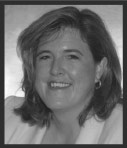 Jeannine Cookson
Jeannine Cookson
Chair of the School of Tourism and Hospitality
Years worked at Fanshawe: 23
Background:
- Studied Hotel and Restaurant Management at Fanshawe College
- Worked in the hospitality industry before developing job re-entry training programs in Sarnia — designed programs for Employment Services to reintroduce workers into the hospitality industry
- Instructed training programs pertaining to hospitality at Lambton College
- Professor in Tourism and Hospitality at Fanshawe before becoming Chair
Most common question students ask:
"Students who are researching (schools) want to know why they should choose Fanshawe over their alternatives," she said. "The difference here at Fanshawe is the total experience. Fanshawe excels in the hospitality service element and the engagement of faculty, working and willing to see their students succeed — that's ultimately what we're here for."
Post-graduation advice:
"To not be afraid to grab an opportunity that may take you out of your comfort zone," she said. "I think sometimes we become very comfortable in a particular area or in our network of friends, but be courageous — take opportunities when they come, because they don't come all the time."
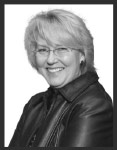 Pam McLaughlin
Pam McLaughlin
Dean and Acting Chair of the School of Health Sciences
Years worked at Fanshawe: 10
Background:
- Completed Bachelor of Nursing Science at Queen's University in 1980
- Worked at hospitals across Canada doing patient and family education, prenatal classes and new baby clinics for families with new children, Mom and Me drop-in centres and school health in elementary and high schools
- Completed Master's in Education at Brock in 1998
- Worked at Norfolk General Hospital, moved to London and worked with Comcare health services as Director of Organizational Development
- Worked at Fanshawe as Chair of Health Sciences and Nursing, became Dean of Health Sciences in 2005
Most common question students ask:
According to McLaughlin, a common question that potential students ask is how they can get into their program. "Programs in Health and Nursing are very competitive," she said, and students may be taking Pre-Health Science to prepare to get into their specific program. "Study hard while you're in that prep program, and treat it like it is your career program," advised McLaughlin. "The better you do in Pre-Health, the better chance you'll have to get into your program."
Post-graduation advice:
"Do your best work because it's a caring mission. Through that work, you're going to leave your legacy. Hold on to your passion for the work. Whatever it is that brought you to study in this professions, keep that close as you move through your career — that opens up all kinds of opportunities for you."
Denise Blay
Acting Chair of the School of Language and Liberal Studies
Years worked at Fanshawe: 22
Background:
- Bachelor's Degree in Language and Literature from UWO
- Master's in Journalism from UWO
- Worked as Faculty in 1989
- Moved to Oxford county in 1996 and became Coordinator of Business Human Resources program as well as the Business Administrative Systems program
- Became the Communications Program Coordinator in 2002
- In 2009 became the General Education Coordinator
Most common question students ask:
As General Education Coordinator, Blay was most commonly asked, "'Can I have my mark changed?' My answer is no, unless there are extenuating circumstances or you can demonstrate that there was something going on that caused you to get that grade. We won't just change marks, but sometimes there are options if the student has a legitimate reason."
Post-graduation advice:
"Keep an open mind about what you can do, where your skills - your own innate skills and the skills you go through the program here — take you. Don't close doors, don't burn bridges, be nice to everybody. Be prepared to start at the bottom and work your way up- demonstrate how good you are. Be open-minded about where you're going and what you're good at."
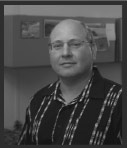 Dr. John Makaran
Dr. John Makaran
Chair of the School of Applied Science and Technology
Years worked at Fanshawe: Almost five
Background:
- Completed a Bachelor's in Electrical Engineering at the University of Western Ontario in 1987, a Master's in Mechanical Engineering at Western in 1990 and a Ph. D. in Electrical Engineering, also at Western, in 2002
- Has worked at 3M, Husky Injection Molding and Siemens
Most common question students ask:
"Kids grow up today using rubrics; they want to have a level of transparency in grading — they want to know what they are being graded on," he said. "We are doing that. We're are insisting that all course information sheets are on FanshaweOnline, we insist that rubrics be created for labs and exams so that people know how they are being graded. Basically we are trying to encourage transparency in my programs, not only in what they're being taught but how they're being graded."
Post-graduation advice:
"If you graduate from a program, let's say a technology program, go to university and become an engineer. You cannot beat the mix between theory and practice," Makaran said. "Don't just become an engineer: do graduate work. That's why we've shortened our programs a whole year, so people could articulate into university programs without incurring a big debt load." In short, he said, it boils down to education: "Stay in school, learn as much as you can ... and be the best you can be."
 Kevin Weaver
Kevin Weaver
Chair of School of Information Technology
Years worked at Fanshawe: Three
Background:
- Completed his Honours Degree in Geography at Wilfred Laurier University
- Completed a 1-year post-graduate diploma from Sir Sanford Fleming College as a Geographic Information Systems Specialist
- Later earned his Master's of Science in Spatial Modelling in Geography at the University of Toronto
- Worked at the Ministry of Natural Resources as a Spatial Analyst
- Also worked in Sault St. Marie modelling forest fires, their ecological impact and revegetation
- Came to London when he was hired by a software development company
- Worked as a Product Manager at Keigan Systems for two years, then as a Project Manager with ZTR Control Systems
Most common question students ask:
When students ask, 'What are the chances of getting a job after graduation?' I usually mention the latest statistics and intangibles. You cannot just rely on course work and the end result of a certificate or diploma (to get you a job)."
Post-graduation advice:
"We will lead you to the point of success, but get involved in community events. Don't be afraid to take risks. Any change or relocation is a risk, so seek those specific opportunities that would complement your strengths and interests."
 Mary Pierce
Mary Pierce
Chair of the Lawrence Kinlin School of Business
Years worked at Fanshawe: 11
Background:
- Graduated from University of Toronto with an Honors Economics Degree in 1981
- Has worked in Marketing Manager and Director positions at Procter and Gamble, SC Johnson Wax and Blackburn Group, and in Vice-President of marketing positions at Avco Financial and City Financial
- Worked at Fanshawe since 2000: first as a Partial Load Instructor from 2000-2003 and became full-time in 2004
- Became Chair of the Lawrence Kinlin School of Business in 2007
Most common questions students ask:
"'Am I in the right program?' 'How can I be successful in my program?' and 'How can I be successful in getting a job and moving forward with my career?' Consider your interests and goals. There is a common first semester and you can switch programs at any time in or at the end of that semester. Learn all you can during that time and make informed choices. Talk to senior students and coordinators in the program, attend the business networking events and learn about careers in that area. Is it right for you? The LKSB has 11 clubs and associations that you can join and increase your visibility and employability and program success."
Post graduation advice:
"Co-ops are a competitive advantage when you get in the workplace. Also consider international exchanges as they are invaluable on a resume." As for post-graduate advice, she recommends the many graduate programs or advance diplomas available through the LKSB or across the college.
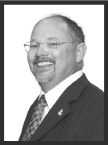 Rob Gorrie
Rob Gorrie
Chair of the School of Transportation Technology
Years worked at Fanshawe: 26
Background:
- Grew up in an automotive—minded family; worked in family shop for many years
- Graduate of Motive Power Technician program at Fanshawe College in 1981
- Became a part—time Professor at Fanshawe in 1985, full—time in 1987
- Became the Chair of Motive Power Technology (now Transportation Technology) in 2005
Most common question students ask:
"It's about the future," he said. "Prospective students seem to always think that the only job in the industry is the vehicle technician - or mechanic - but there are really hundreds of jobs in the transportation industry, from insurance to technical writing, manufacturing to research and development, so there ar a lot of opportunities in this field."
Post-graduation advice:
"The biggest thing is they need to humble themselves and hold a high work ethic. Those two things will carry them through when an employer sees that."













